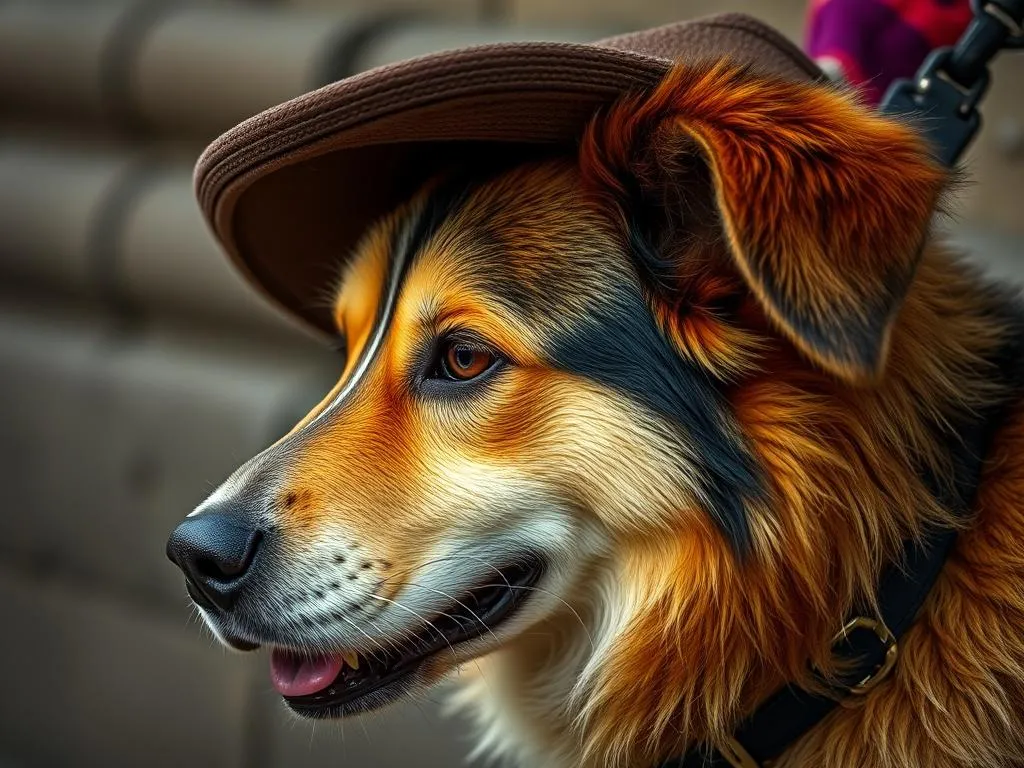
Dog ownership in Germany is not just a pastime; it’s a deeply ingrained aspect of the culture. With approximately 8 million dogs in the country, Germany boasts one of the highest rates of dog ownership in Europe, with around 30% of households having at least one furry companion. This statistic underscores the significant role dogs play in the lives of many Germans. Dogs are often seen as family members, companions, and even status symbols. Understanding the dog culture in Germany offers valuable insights for both dog owners and enthusiasts alike, revealing unique customs, regulations, and attitudes that define the bond between Germans and their dogs.
Historical Context of Dogs in Germany
Origins of Canine Companionship
The relationship between dogs and humans in Germany dates back centuries. Historically, dogs served various roles, from herding livestock to guarding homes. The evolution of dog breeds in Germany is fascinating, with many well-known breeds originating from the country. The German Shepherd, for instance, was developed in the late 19th century for herding sheep. Other breeds like the Rottweiler and Doberman also have deep historical roots, showcasing the diverse roles dogs have played in society.
Legal Framework for Dog Ownership
Over the years, laws regarding dog ownership in Germany have evolved significantly. Initially, regulations focused on the responsibilities of dog owners, particularly in rural areas where dogs were essential for farmhouse security and livestock management. Today, the legal framework includes stringent requirements for dog registration, insurance, and health standards. For instance, many states in Germany mandate that dog owners have liability insurance, reflecting a cultural emphasis on responsibility and care.
Types of Popular Dog Breeds in Germany
Native German Breeds
Germany is home to several notable dog breeds, each with unique characteristics and charms:
- German Shepherd: Known for their intelligence and versatility, German Shepherds are popular as working dogs in police and military roles. Their loyalty and protective nature make them excellent family pets.
- Rottweiler: These robust dogs are known for their strength and confidence. Originally bred to drive cattle, Rottweilers are now favored for their loyalty and protective instincts.
- Doberman Pinscher: Renowned for their elegance and intelligence, Dobermans are often used as guard dogs. They are loyal companions and require consistent training and socialization.
These breeds embody the values of loyalty, obedience, and companionship that resonate deeply within dog culture in Germany.
Imported Breeds and Trends
As global influences permeate dog ownership, various non-native breeds have gained popularity. Breeds such as the French Bulldog, Labrador Retriever, and Golden Retriever have seen a surge in ownership. This trend reflects the globalization of pet ownership, where preferences shift towards breeds that complement modern lifestyles. The love for dogs transcends borders, and German dog owners are increasingly embracing a diverse array of breeds.
Dog Ownership Statistics and Demographics
Current Statistics
With dog ownership rates soaring, the percentage of households with dogs in Germany is impressive. Approximately 30% of households have at least one dog, with variations evident across regions. Urban areas may see higher concentrations of small dog breeds, while rural areas often have larger breeds due to the availability of space.
Demographics of Dog Owners
The demographics of dog owners in Germany reveal intriguing patterns. Different age groups exhibit varied preferences for dog breeds. For example, younger owners often gravitate toward smaller, more portable breeds, while older generations may prefer larger, traditional breeds. Gender differences are also notable, with studies indicating that women are more likely to own dogs than men, reflecting the nurturing aspect often associated with pet ownership.
Dog-Friendly Policies and Regulations
General Legal Requirements
Owning a dog in Germany comes with specific legal obligations. Dog owners are required to register their pets, ensuring that each dog is accounted for within their respective municipalities. Vaccination against rabies is mandatory, and many states have additional health regulations that must be adhered to. This emphasis on responsible ownership is a cornerstone of dog culture in Germany, contributing to the overall well-being of canine companions.
Dog-Friendly Public Spaces
Germany is renowned for its dog-friendly policies, with numerous parks, trails, and public spaces welcoming dogs. Cities like Berlin and Munich are home to an array of dog parks where pets can socialize freely. These areas often provide amenities such as agility courses and water stations, enhancing the experience for both dogs and their owners. The accessibility of these spaces fosters a sense of community among dog owners, encouraging social interactions and shared experiences.
Insurance and Liability Considerations
Liability insurance is an essential aspect of dog ownership in Germany. Many dog owners opt for policies that cover potential damages or injuries caused by their pets. This practice reflects the cultural attitude of accountability and responsibility that permeates dog culture in Germany. Understanding the implications of liability is crucial for every dog owner, ensuring that they are prepared for any unforeseen circumstances.
Cultural Attitudes Towards Dogs
Dogs as Family Members
In Germany, dogs are often regarded as integral family members. The perception of dogs as companions rather than mere pets fosters a nurturing environment where they are included in family activities. This contrasts with other cultures where dogs may be viewed primarily as working animals. The emotional bond between Germans and their dogs is evident in the attention and care that owners provide, often treating their dogs to regular grooming, training, and social outings.
Social Norms and Etiquette
Social norms surrounding dog ownership in Germany emphasize respect and consideration in public spaces. Dog owners are expected to clean up after their pets, adhere to leash laws, and ensure their dogs are well-behaved in communal areas. This etiquette fosters a harmonious coexistence between dog owners and non-dog owners, creating a culture of mutual respect. The interactions between dog owners often lead to friendships and community ties, reinforcing the social aspect of dog ownership.
Activities and Services for Dogs
Dog Training and Obedience Schools
Training is a fundamental component of responsible dog ownership in Germany. Various training methods are employed, with a focus on positive reinforcement and socialization. Numerous obedience schools and training programs are available, catering to different breeds and skill levels. Certification programs for trainers also exist, ensuring high standards within the industry. Many dog owners prioritize training, recognizing its importance for a well-adjusted and happy pet.
Dog Sports and Competitions
Germany boasts a vibrant dog sports scene, with various competitions and events that celebrate canine skills. Popular sports include agility, obedience trials, and tracking competitions. These activities not only enhance the bond between dogs and their owners but also provide an outlet for exercise and mental stimulation. Major events, such as the World Dog Show, draw international participants, highlighting Germany’s prominent role in the global dog community.
Pet Services and Businesses
The rise of pet services in Germany reflects the increasing importance of dogs in society. Pet grooming, daycare, and boarding facilities have become widely available, catering to the needs of busy dog owners. Additionally, dog-friendly cafes and restaurants have emerged, allowing owners to enjoy meals with their furry companions. This trend showcases the growing acceptance of dogs in public spaces, further integrating them into the fabric of daily life.
Challenges Faced by Dog Owners
Urban vs. Rural Living
The experiences of dog owners can vary significantly between urban and rural living. In urban areas, space constraints may limit the types of breeds that are practical for apartment living. Owners often seek out dog parks for exercise and socialization, yet may face challenges finding adequate space for their dogs to roam. Conversely, rural owners typically enjoy larger properties, providing ample space for their dogs to explore. However, they may encounter difficulties in accessing dog-friendly services and communities.
Health and Wellness Concerns
Like anywhere else, health and wellness concerns are paramount for dog owners in Germany. Certain breeds are prone to specific health issues, necessitating regular veterinary care and preventive measures. Owners are encouraged to stay informed about breed-specific health problems, ensuring they can provide the best care possible. Routine check-ups and vaccinations are integral to maintaining the health of canine companions.
Social and Behavioral Challenges
Addressing social and behavioral challenges is another aspect of dog ownership. Many owners encounter issues such as separation anxiety, aggression, or excessive barking. Fortunately, resources are available for dog owners facing these challenges, including training programs, behaviorists, and support groups. Engaging with these resources can help owners cultivate a well-adjusted and happy pet, enhancing the experience of dog ownership.
The Future of Dog Culture in Germany
Trends in Dog Ownership
Looking ahead, trends in dog ownership in Germany are likely to evolve. As society changes, so too will the preferences for dog breeds and ownership styles. Increasingly, people may seek smaller, low-maintenance breeds that fit modern lifestyles. Additionally, the emphasis on sustainability and ethical breeding practices may influence future trends, encouraging responsible ownership and breed selection.
Role of Technology
Technology is poised to play a significant role in shaping the future of dog culture in Germany. Apps for pet care, training, and socialization are becoming more prevalent, allowing owners to connect with services and other dog owners. Wearable devices for tracking health and activity levels are also gaining traction, enabling owners to monitor their dogs’ well-being more closely. This technological integration promises to enhance the overall experience of dog ownership, fostering stronger connections between dogs and their owners.
Conclusion
Understanding dog culture in Germany reveals a rich tapestry of history, regulations, and societal norms that shape the experiences of dog owners across the country. From the deep-rooted connections to native breeds to the evolving landscape of pet services and technology, the bond between Germans and their dogs continues to thrive. As dog ownership grows in popularity, so too does the responsibility and care that accompany it. Engaging with local dog communities and understanding the cultural nuances can enhance the experience for both new and seasoned dog owners alike, ensuring that this cherished relationship remains a vital part of German society.









